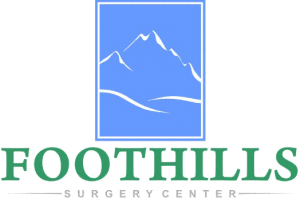Patient Health-Related Emergencies
Surgery and other invasive procedures come with risks. These risks were discussed with you by your attending physician when obtaining your informed consent. Our medical and nursing professionals are trained to respond to emergencies, such as respiratory or cardiac insufficiency or arrest.
- Certification in Advanced Cardiac Life Support (ACLS) is required for anesthesia providers and nursing professionals in our ASC’s post-anesthesia care unit,
- The same professionals are required to hold Pediatric Advanced Life Support certification in ASCs where pediatric patients (newborn to age 18) are served.
- Other complications of surgery or invasive procedures can occur and will be managed by a team of professionals to ensure your personal safety.
- All unexpected patient care events are reported to our Medical Advisory Committee for quality of care evaluation. Our goal for quality achievement is to assess our performance, plan for improvement, and provide opportunities for shared learning across our organization to prevent these events in the future.
Natural and Man-Made Disasters
When it comes to natural or man-made disasters, Foothills Surgery Center complies with the Emergency Preparedness Rule set forth by Centers for Medicare & Medicaid Services (CMS). The Emergency Preparedness Rule mandates all health care facilities have an emergency plan in place. The plan includes assessment of risks and preparation designed to proactively manage identified threats. Personnel are trained in emergency response. Mock drills allow us to assess response protocols and identify opportunities to improve.
The elements of the Emergency Preparedness Plan include:
- Risk Assessment and Planning – CMS requires an “all-hazards” integrated approach to prepare for a wide range of potential threats, focusing on those most likely to occur at our location.
- Policies and Procedures – ASCs must develop policies and procedures which account for all occupants (patients, physicians, and personnel) during an emergency. The plan must address how to conduct patient transfers for individuals who need more specialized care during an emergency or identify when the best course of action is to provide shelter until the emergency has stabilized or is resolved.
- Communication Plan – The communication plan coordinates all aspects of internal and external communication during an emergency, including the management of patient care and/or request for aid with agencies offering additional assistance.
- Training and Testing – The most effective way to test preparedness for any emergency is to practice. Staff training is essential to optimize safety and minimize loss of human life or business assets. A minimum of two emergency preparedness drills are required annually – one community-based and another facility-based or tabletop exercise.
In accordance with the Emergency Preparedness Rule set forth by CMS and the standards of care set forth by the Foothills Surgery Center’s mission, vision, and values, Foothills Surgery Center is prepared to respond to a wide-range of emergencies that may occur at our ASC. Our hope is our staff does not have to use this extensive training when providing care to you or your loved ones. In the event an emergency does occur, our team will do everything in our power to ensure the safety of our patients.

